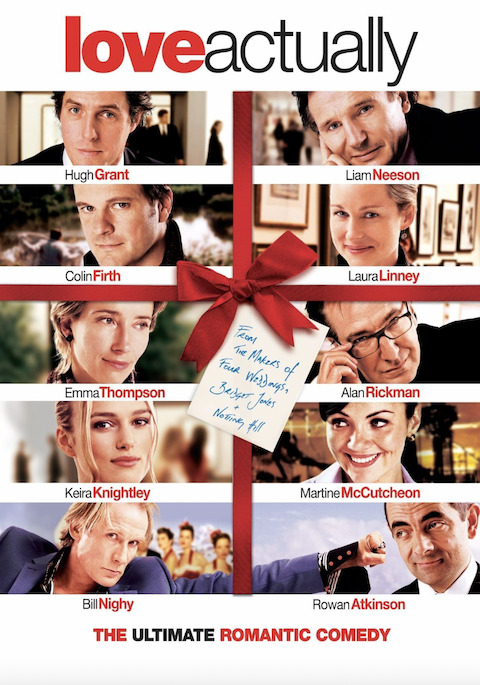
@Courtesy of Universal Pictures.
“Love Actually” has become an end-of-year holiday classic for a new generation of filmgoers, much as “It’s a Wonderful Life,” “White Christmas,” or “The Grinch Stole Christmas” became beloved chestnuts roasting on open fires for their parents and grandparents.
Released in 2003, “Love Actually” was written and directed by Richard Curtis. The romcom featured an ensemble cast of mostly British actors that included Hugh Grant, Liam Neeson, Colin Firth, Laura Linney, and Emma Thompson among others.
Filmed primarily in London, the movie comprises a series of vignettes depicting various aspects of love experienced by a wide variety of people, many intertwined.
The storyline opens a month before Christmas and unfolds during the holiday season, followed by an epilogue after the New Year.
Despite mixed reviews, “Love Actually” was a box-office success that grossed $245 million in global receipts on a budget of $40 million and won a Golden Globe nomination for Best Motion Picture—Music or Comedy. Perhaps one factor contributing to its success was the yearning for closure and stability after the 9/11 attacks two years earlier: the film opens and closes with scenes of holiday cheer at London’s Heathrow Airport.
When “Love Actually” premiered in 2003, Emma Thompson told Access Hollywood she was worried about the public reaction to the film. “You know I’m British about this and I always think [don’t hype it] too much because people might go and be disappointed.” And eighteen-year-old Keira Knightley was quoted as telling the same interviewer: “I have never been so terrified as when I went to the read through at the beginning and it was all these amazing actors sitting around one table reading.”
As proof of the film’s appeal to a new generation of moviegoers, Kevin Fallon wrote in The Daily Beast’s Obsessed this week: “Each year, “Love Actually” resurfaces over the holiday season. It plays constantly on cable. Memes are shared online. … Is it corny? Yes. Is it schmaltzy? Blessedly so. Are there plot holes and things that might be rendered problematic by today’s standards? Big fat whoop.”
Fallon concludes: “The movie is wistful, romantic, melancholy, devastating, and naively hopeful. That’s what Christmas means to me … On its 20th anniversary this Christmas (and at Christmas, you tell the truth), let me say about “Love Actually” : To me, you are perfect.”
Check out more of Edward’s articles

